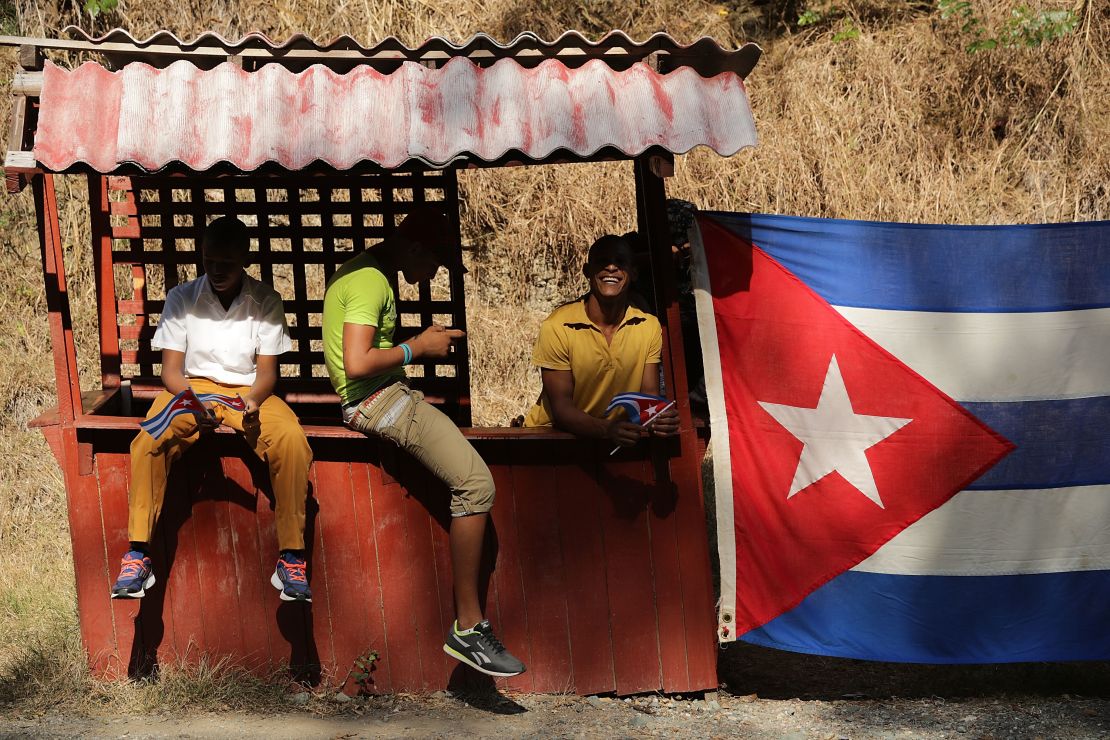Story highlights
Trump is set to make a speech in Miami on Friday
He is expected to roll back some of Obama's changes
President Donald Trump is set to announce Friday, before an audience of anti-Castro Cuban exiles in Miami, that he is rolling back parts of the Obama administration’s opening with Cuba.
Trump is not expected to reverse all of President Barack Obama’s changes, which were seen as the most significant relaxation of tensions between the United States and Cuba since Fidel Castro’s 1959 revolution.
Trump will chill Obama’s warmer relations with Cuba, officials say
While the US prohibits tourism to Cuba, the US Treasury Department currently allows travelers to “self-license” under 12 different categories of travel, such as educational tours and participating in sporting events. Trump will end that practice for so called “people to people” travel, which has created a loophole that allows almost anyone to travel to the island legally senior White House officials said. Americans traveling to Cuba will face more scrutiny and potentially audits of their trip when they get back home in order to prove their dollars didn’t go to the Cuban military’s pockets, which control much of the tourism economy.
Restricting travel to Cuba will likely impact earnings for the US airlines and cruise ship companies that began service to Cuba in 2016 and go against a rising anti-travel sanctions sentiment.
What was the Obama thaw with Cuba?

On December 17, 2014, Obama and Cuban President Raul Castro made a surprise simultaneous announcement after months of secret talks to swap prisoners and open a dialogue between the long time Cold War foes.
What followed over the next two years was the most significant change in US-Cuban relations since the 1959 revolution. The US embassy that was closed in 1961 reopened in Havana. Companies like Airbnb, Google and Sheraton hotels began to operate in Cuba. US airlines and cruise ships restored service to the communist-run island. Relaxed travel laws allowed hundreds of thousands of Americans to visit Cuba for the first time.
What’s happening now?

Critics say Obama didn’t exact concessions from the Cuban government on human rights and democratic reforms. The island’s government will not permit any party other than the ruling communist party to exist and frequently harasses and detains opponents.
Cuban-American GOP lawmakers, Sen. Marco Rubio and Rep. Mario Diaz-Balart say more sanctions are needed. But even some international human rights groups critical of the Cuban government say that would mean doubling down on a failed policy.
What will Trump do?

US government officials tell CNN that Trump will not, as he threatened during the campaign, close the US embassy in Havana and break off ties.
But Trump is expected to make it tougher for Americans to visit and do business on the island while blasting Cuba’s alleged human right abuses and harboring of US fugitives. It could return US-Cuban relations to the chilly days of the Cold War.
What about imports?

When Obama lifted the ban on Americans bringing Cuba’s fabled cigars and rum home from travel abroad for personal use, many took the opportunity to light one up and sip a glass of a?ejo.
While the Trump administration says it wants to crack down on sources of revenue for the Cuban government so far there are no plans to reinstate the ban on Cuban cigars and rum, officials said. At least not yet.
How will the Cuban government respond?

Since the rapprochement with the US, the Cuban government has repeatedly said it will hold talks on any topic the US wants to discuss.
While there hasn’t been much progress, both governments have already been negotiating on thorny issues like human rights, fugitives and repatriations for Americans who had their property seized after the revolution.
Don’t expect the new measures to sway Cuba’s leaders. Cuban officials proudly say they have already withstood over 50 years of punishing US sanctions.
What do the Cuban people think?

Despite the years of hostility, Cubans generally love America.
Many Cubans have relatives in the US and they soak up Americans sports and culture. They cheered when relations were restored with the US and Obama visited the island in 2016, the first US president to do so in nearly 90 years.
Google is helping improve the island’s sluggish Internet and in 2016 Airbnb paid $40 million to Cubans who rent out their homes.
Many Cubans are afraid those advances will be casualties of the Trump rollback.


